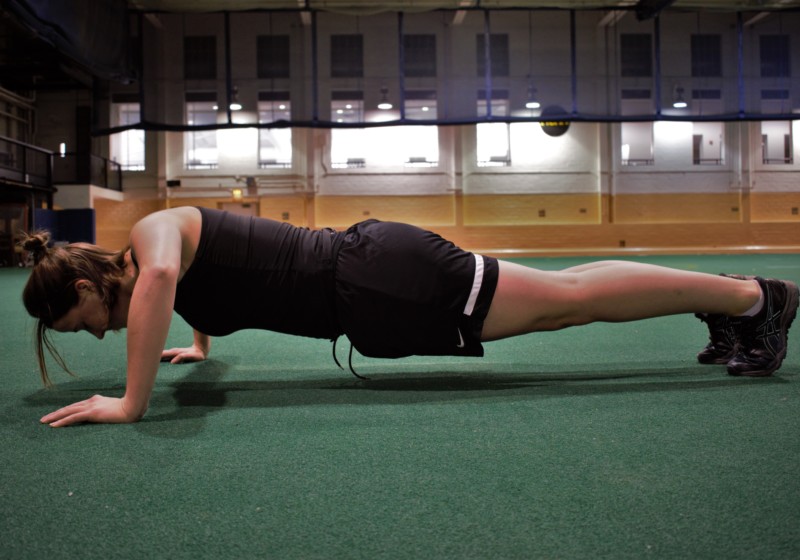Laura Cowie-Haskell doesn’t believe in the perfect body.
For the senior, no picture on Instagram, Facebook, or any other social media should serve as a person’s model for how their body should look.
In October, Cowie-Haskell created an Instagram account, femloveandfitness focusing not on any ideal body image but on self-acceptance and loving one’s own body through fitness. In the months following its creation, the “fitsta” now has almost 1,000 followers.
“I didn’t want to make an Instagram like all the other fitness Instagrams out there, where women look super beautiful and ripped all the time,” Cowie-Haskell said. “I just want to be me, and I want it to be real, and I want to show what it’s like to work hard […] and document the challenges to that but also the successes and be inspiring through a relatable experience.”
Cowie-Haskell, who usually exercises six days a week, didn’t previously view her body positively. When she first came to UR, Cowie-Haskell, who was on the varsity soccer team, was self-conscious of her body image.
Eventually, Cowie-Haskell realized something needed to change. For her, attempting to conform her body to the image society prescribes was wrong and impossible.
Since then, she has shifted her workout from cardio and ab exercises to a regimen based less on how her body looks and more on how she feels.
“When I was working out to be someone, to be a certain way, I was running, doing elliptical and abs,” Cowie-Haskell said. “Now I do what makes me feel good. It’s a lot of what my body feels like it wants today. Sometimes I really just need to get some stress out, so I run. Sometimes I feel angry, so I do some arm stuff.”
The Instagram account came later, when one of Cowie-Haskell’s friends suggested she create a blog on her fitness routines since he thought her exercise was inspiring.
That’s when femloveandfitness was born.
In the few short months the blog has been up, Cowie-Haskell has documented not just her own workout experiences, but also the experiences of others.
“I am not totally confident in the way my body looks,” said senior Colleen Meidt, who has been featured in two posts on the account. “Having Laura use my camera to capture shots of me, shirtless and flexing, was truly terrifying. But it was a practice of reflection. Reflection that I find myself unattractive to others and how media conditions us to believe we must look a certain way.”
Senior Natalie Ziegler, a fan of the account, concurs.
“I used to be a competitive athlete and have a really difficult relationship with my body,” she said. “After quitting sports, I’ve [had] a more peaceful relationship with my body and have accepted it for what it is, but sometimes it’s hard to figure out the role fitness plays in my life now. Laura’s fitsta is a fun, healthy, and helpful reminder that I don’t need fitness to be a means to an end; instead, it’s a constant act of self-care and self-love and thus empowerment.”
Beyond featuring workouts, Cowie-Haskell attaches motivational messages to her photos. In some, she mentions what exercises she’s done. She feels that her workouts have helped to bring more positivity into her life.
“I would say fitness and exercise is a really empowering thing, but it can only be empowering if it comes from a place of love and self-care,” Cowie-Haskell says. “It’s a mutual process. The more you care for your body, the more you love your body […] it’s mainly a mental thing. A lot of the origin of your unhappiness is a construct that you can escape […] and fitness will help you do that.”
Cowie-Haskell has no plans to stop posting on the account and wants it to be used as a source of positive change amid what she feels is a sea of negativity in today’s media.
“I strongly believe that if you can’t unconditionally love yourself then you’ll never reach your love’s true capacity for others,” she wrote in a post last month.
Post by post, that’s what she hopes she’s helping people realize.






